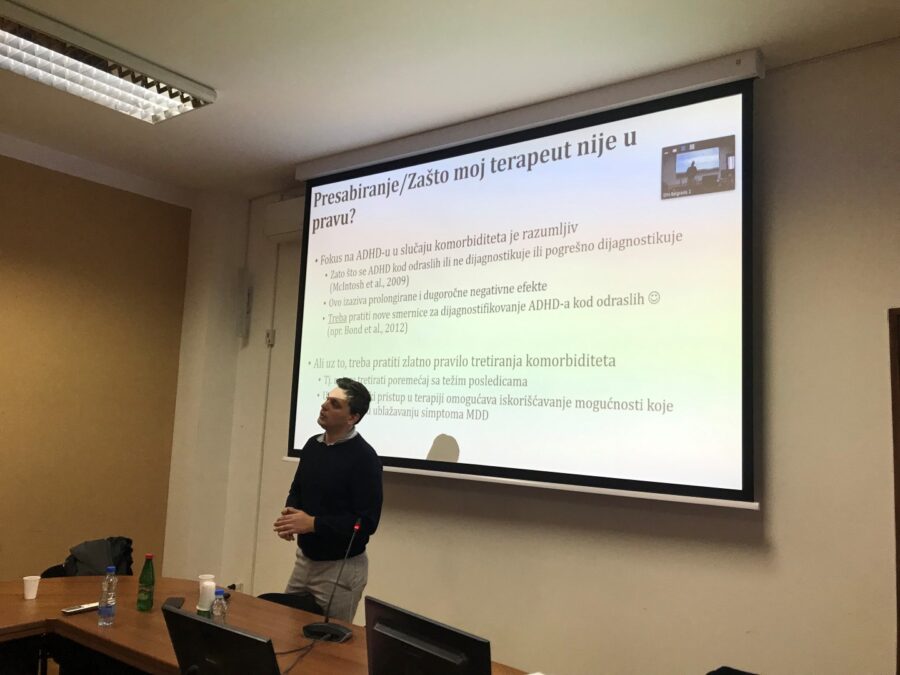How one mental disorder (hyperkinetic disorder) can be a good “ally” in the fight against another mental disorder (severe depressive disorder) was discussed by doctoral student Petar Nurkić in his lecture entitled “Why I don’t need to pull myself together – ADHD and other unusual allies in the fight against depression”.
The coexistence or comorbidity of ADHD and Major Depressive Disorder (MDD) presents a complex psychological situation. While ADHD is characterized by impulsivity, hyperactivity, and attention deficit, MDD is marked by persistent feelings of sadness, reduced interest, and impaired functioning. In his presentation, the author has investigated the hypothesis that certain ADHD traits can serve as unconventional defence mechanisms for individuals with MDD. The goal is to demonstrate that what is commonly labeled as “excess energy” and “distractibility” can effectively counter the typical fatigue and stagnation associated with depression. MDD is an exhausting condition with symptoms like lethargy, hopelessness, and a lack of motivation. In contrast, pronounced hyperactivity and impulsivity in ADHD represent a contrasting spectrum of behaviors.
Hyperactive behavior can temporarily inject a sense of vitality and spontaneity, sometimes manifesting as active engagement in various hobbies and activities that can counteract the apathy associated with MDD. Phenomenological reports from individuals diagnosed with both ADHD and MDD reveal a range of significant experiences. For some, the impulsive and proactive tendencies of ADHD act as a catalyst for engagement in activities, offering brief relief from depressive symptoms. Others describe a complex interaction between the disorders, where hyperactivity opposes the lethargy of depression, and intense focus (often referred to as hyperfocus in ADHD) serves as a valuable tool for constructive participation in activities.
Recognizing the subtle interaction between ADHD and MDD is crucial for mental health professionals, as emphasized by Nurkić. Integrating psychostimulants, antidepressants, and
cognitive-behavioral therapy allows for addressing the specific challenges arising from the coexistence of these disorders. In the conclusion of their presentation, Nurkić delves further into the adaptive aspects of simultaneously experiencing ADHD and MDD. Recognizing ADHD as a potential mechanism for coping with MDD empowers psychiatrists and psychotherapists to develop more nuanced and comprehensive therapeutic approaches, treating this dual diagnosis as a distinct entity.
Petar Nurkić’s lecture is the seventh in the series of seminars on “Philosophy and Psychiatry” organized by the Center for Philosophy at the Institute of Social Sciences.

